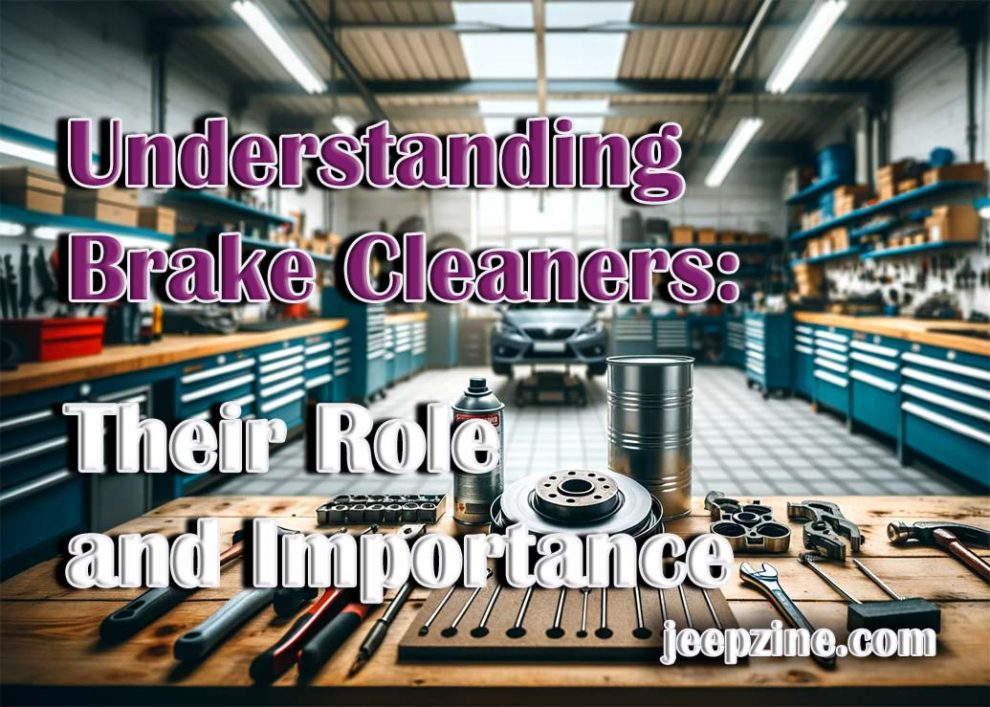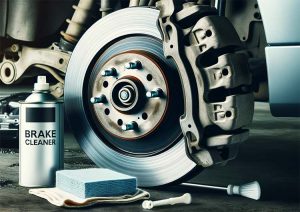Brake cleaners play a pivotal role in vehicle maintenance, particularly in ensuring the optimal performance and longevity of the braking system. These specialized cleaning agents are formulated to tackle the tough job of removing various contaminants, including grease, oil, brake fluid, and brake dust, from the brake parts. The importance of using brake cleaners cannot be overstated, as they directly contribute to the safety and reliability of your vehicle by maintaining clean and efficient brakes.
Composition and Types of Brake Cleaners
The chemical makeup of brake cleaners allows them to dissolve and remove substances that are otherwise difficult to clean. These cleaners are categorized into two main types: chlorinated and non-chlorinated. Chlorinated brake cleaners have been widely used due to their strong cleaning capabilities and fast evaporation rate. However, due to environmental and health concerns, non-chlorinated versions have gained popularity. Non-chlorinated brake cleaners are formulated to be less harmful and are safer for both the user and the environment, though they may require a bit more effort to clean as effectively as their chlorinated counterparts.
The Main Functions of Brake Cleaners
Brake cleaners serve several crucial functions within the maintenance of a vehicle’s braking system:
-
Removing Grease and Oil: These substances can compromise the contact between the brake pad and the rotor, leading to inefficient braking.
-
Eliminating Brake Dust: Accumulated brake dust can cause noise and reduce the efficiency of your brakes.
-
Preventing Rust and Corrosion: By keeping the brake components clean, brake cleaners help to extend their lifespan and prevent malfunction.
Using brake cleaners regularly is an essential part of brake maintenance that ensures the components remain in good condition and function properly.
How to Use Brake Cleaners Safely and Effectively
When using brake cleaners, safety should always be a priority. Due to their chemical nature, it’s important to wear protective gloves and safety goggles, and ensure that the area is well-ventilated. Application involves spraying the cleaner directly onto the brake parts and allowing it to evaporate, which will also remove the dislodged contaminants. Care should be taken to avoid using brake cleaner on plastic or rubber parts, as it can cause damage to these materials.
To ensure you adhere to safety standards and keep track of maintenance schedules, setting reminders through Google Calendar can be highly effective. This helps in maintaining consistent cleaning intervals and safety checks.
The Importance of Regular Brake Maintenance
Regular maintenance of your vehicle’s brake system is crucial for ensuring safety on the road. By incorporating the use of high-quality brake cleaners into your maintenance routine, you can prevent the buildup of harmful substances on your brake components. This not only helps in maintaining optimal braking performance but also allows for early detection of wear and tear, facilitating timely repairs or replacements. Within the context of maintenance, it’s also beneficial to consider the type of brake pads you are using. For those with a Dodge Ram, opting for the best brake pads for Dodge Ram 1500 can significantly improve your vehicle’s braking performance, especially under harsh or off-road conditions. Detailed insights into selecting the right brake pads for your Jeep can be found in another one of our articles.
Conclusion
Brake cleaners are indispensable tools in vehicle maintenance, offering a simple yet effective means to ensure the safety and efficiency of your vehicle’s braking system. Understanding what does brake cleaner do and incorporating it into your regular maintenance routine can have profound effects on your vehicle’s performance and longevity. It is not just about keeping the brake parts clean; it is about ensuring that your vehicle remains safe and reliable on the road. Always follow the manufacturer’s guidelines for use and take the necessary safety precautions to protect yourself and your vehicle during maintenance.


 Removing Grease and Oil: These substances can compromise the contact between the brake pad and the rotor, leading to inefficient braking.
Removing Grease and Oil: These substances can compromise the contact between the brake pad and the rotor, leading to inefficient braking.